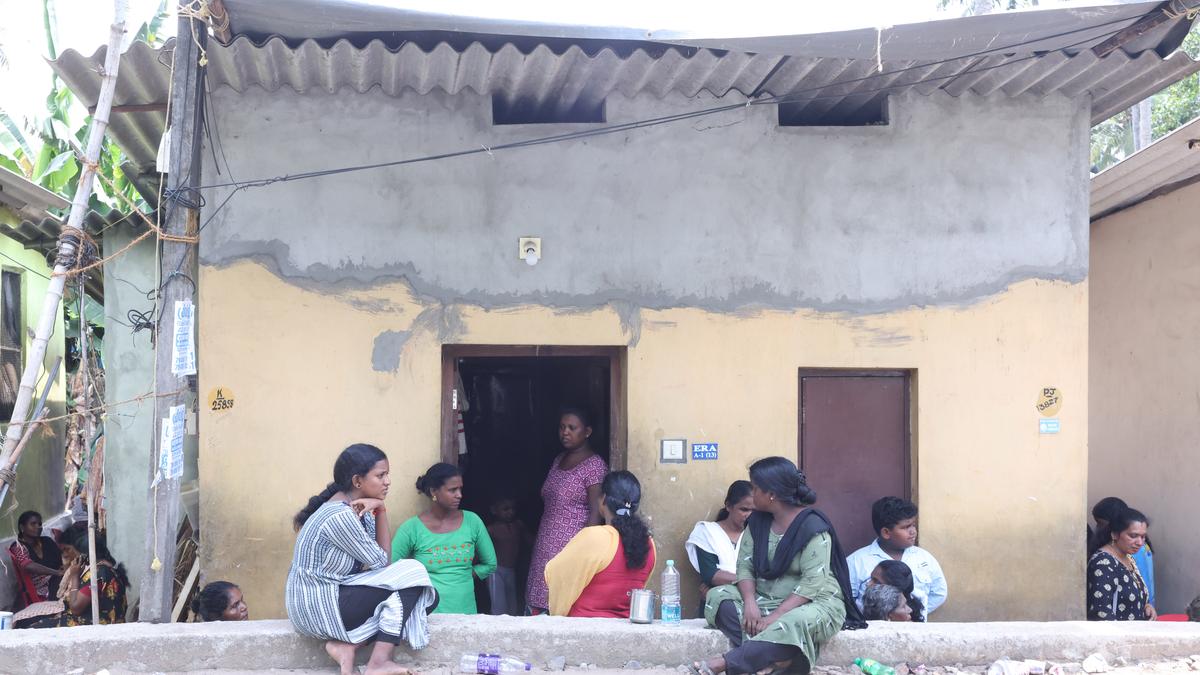
Gangs of Thiruvananthapuram Premium
The Hindu
Edagramam village in Thiruvananthapuram grapples with a recent violent tragedy, sparking concerns over rising criminal activities in the region.
Trigger warning: The following contains references to violence, which may be disturbing for some.
Edagramam, a village about 2 km off National Highway 66 in Thiruvananthapuram, bears no visible scars of the horrors that unfolded a fortnight ago. In Planjiplavila House, though, despair hangs heavy as the family mourns the tragic loss of a beloved member. Around them, save for a handful of bystanders and a vigilant police presence, life flows as usual. Vehicles whizz by the nondescript compound walls, outside which chilling events transpired two days ago.
A few days ago at least 250 people, including journalists, law enforcement officers, activists, and concerned locals descended upon the modest brick-and-mortar home, drawn by the news of a heinous crime — the slaying of 26-year-old Akhil Kumar. The events of May 7 seized public attention with the emergence of CCTV footage, laying bare the savagery that led to Akhil’s untimely demise.
At around 5.30 p.m. that day, Akhil, the youngest of Kumar and Sunitha’s four children, was tending to his pet pigeons outside, as his parents sat inside the house seeking refuge from the relentless heat. CCTV footage shows three men springing an attack on him and chasing him on a dusty road flanking his house. They beat him with an iron rod and dropped a concrete block on his head several times. A passing autorickshaw driver alerted them to what had happened. Tragically, he was pronounced dead upon arrival at Thiruvananthapuram Government Medical College Hospital.
Haunted by remorse for being unable to shield his son from harm, the grief-stricken father fondly recalls Akhil as “a dutiful son who had never engaged in any nefarious deeds. Chikku (as Akhil was fondly called) used to work hard to help the family meet its ends. Nowhere will you hear anyone speak ill of Kumar’s children”, he says. His inconsolable wife has refused to eat anything since the incident.
Arun, 29, the second of the siblings, speaks fondly of Akhil: “He would sell fish at Nettayam [on the outskirts of Thiruvananthapuram city], after getting the daily catch from Perumathura [nearly 30 km away], early in the morning. Akhil would also take up daily wage jobs such as painting,” he says.
Dinesh Kumar, the Station House Officer (SHO) of Karamana under whose jurisdiction Edagramam falls, reveals that the killing stemmed from a clash between two groups at a bar in Pappanamcode nearby on April 26, the day Kerala held its elections. “The deceased along with his friend Vyshakh and around five others had gathered at the bar shortly after the sale of alcohol resumed after the elections. A dispute erupted when a group objected to Vyshakh’s loud singing, leading to a scuffle,” he says.

“Writing, in general, is a very solitary process,” says Yauvanika Chopra, Associate Director at The New India Foundation (NIF), which, earlier this year, announced the 12th edition of its NIF Book Fellowships for research and scholarship about Indian history after Independence. While authors, in general, are built for it, it can still get very lonely, says Chopra, pointing out that the fellowship’s community support is as valuable as the monetary benefits it offers. “There is a solid community of NIF fellows, trustees, language experts, jury members, all of whom are incredibly competent,” she says. “They really help make authors feel supported from manuscript to publication, so you never feel like you’re struggling through isolation.”

Several principals of government and private schools in Delhi on Tuesday said the Directorate of Education (DoE) circular from a day earlier, directing schools to conduct classes in ‘hybrid’ mode, had caused confusion regarding day-to-day operations as they did not know how many students would return to school from Wednesday and how would teachers instruct in two modes — online and in person — at once. The DoE circular on Monday had also stated that the option to “exercise online mode of education, wherever available, shall vest with the students and their guardians”. Several schoolteachers also expressed confusion regarding the DoE order. A government schoolteacher said he was unsure of how to cope with the resumption of physical classes, given that the order directing government offices to ensure that 50% of the employees work from home is still in place. On Monday, the Commission for Air Quality Management in the National Capital Region and Adjoining Areas (CAQM) had, on the orders of the Supreme Court, directed schools in Delhi-NCR to shift classes to the hybrid mode, following which the DoE had issued the circular. The court had urged the Centre’s pollution watchdog to consider restarting physical classes due to many students missing out on the mid-day meals and lacking the necessary means to attend classes online. The CAQM had, on November 20, asked schools in Delhi-NCR to shift to the online mode of teaching.









